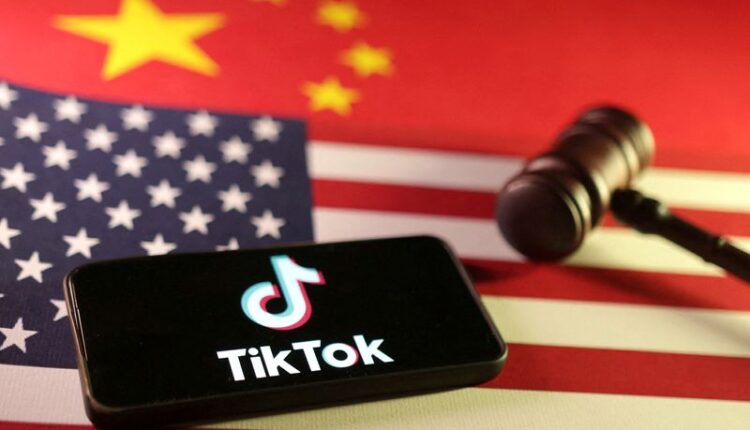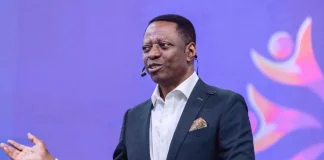🌿 Ruzu Non-Alcoholic Herbal Bitters
Ruzu Non-Alcoholic Herbal Bitters is a natural health supplement specially formulated to:
- ✅ Promote general wellness
- ✅ Detoxify the body
- ✅ Support the treatment of various ailments
Made from a powerful blend of 100% organic and medicinal herbs, Ruzu is completely alcohol-free, making it ideal for:
- 👪 All age groups
- 🌱 Health-conscious individuals
- 🌿 Anyone seeking non-alcoholic herbal remedies
Whether you're looking to boost your vitality, cleanse your system, or support healing the natural way, Ruzu Bitters offers a trusted herbal solution.
A regulation that would compel ByteDance, the Chinese company that owns TikTok, to sell the enormously popular online video-sharing platform or shut it down was expected to be upheld by the US Supreme Court on Friday.
A lawyer for TikTok argued that forcing a sale violated First Amendment free expression rights, but the majority of the conservative and liberal justices on the nine-member court seemed unconvinced.
Unless ByteDance divests from the social media platform by January 19, TikTok, which has 170 million American users, would be prohibited from accessing US app stores and web hosting services under a bill signed by President Joe Biden in April.
The US government claims TikTok is a vehicle for the dissemination of propaganda and permits Beijing to gather information and spy on users. China and ByteDance vehemently refute the allegations.
TikTok attorney Noel Francisco stated during two and a half hours of oral arguments that “this case ultimately boils down to speech.” We’re discussing concepts here. If the First Amendment is any indication, it states that the government is not allowed to censor speech.
A few of the justices objected, citing TikTok’s Chinese ownership.
“It is reasonable to assert that a foreign government, especially an adversary, lacks the right to free speech in the United States,” Justice Samuel Alito stated. “Why should everything be concealed under a fabricated corporate structure of some sort?”
Justice Brett Kavanaugh and Chief Justice John Roberts brought up the Protecting Americans from Foreign Adversary Controlled Applications Act’s concern for national security.
According to Kavanaugh, “I believe that the president and Congress were worried that China was gaining access to data about millions of Americans, tens of millions of Americans, including teenagers and people in their 20s.”
They were worried “that they would use that information over time to develop spies to turn people, to blackmail people, people who in a generation will be working in the FBI or the CIA or in the State Department,” he continued.
Asking the TikTok attorney if the court is “supposed to ignore the fact that the ultimate parent is, in fact, subject to doing intelligence work for the Chinese government,” Roberts
Francisco said Congress might have taken different actions to allay its worries, such mandating that information from TikTok users in the US not be shared with third parties.
The statement, “You can’t give it to ByteDance, you can’t give it to China, you can’t give it to Google, and you can’t give it to Amazon,” was the most obvious option, he claimed.
What would happen if ByteDance refused to sell TikTok after January 19? Francisco was asked.
“We go dark,” he declared. “In essence, the platform stops functioning.”
Amy Coney Barrett, a justice, objected to Francisco’s description.
Barrett remarked, “You say shut down all the time.” “The legislation does not require TikTok to close. ByteDance must divest, according to this. Wouldn’t we be here if ByteDance sold off TikTok?
The Biden administration’s Solicitor General Elizabeth Prelogar also brought up national security issues, describing Chinese government control of TikTok as a “serious danger.”
Read Also: Lakurawa Terrorists: Military Reiterates Commitment To Eradication
“The Chinese government could use TikTok as a weapon against the United States at any time,” Prelogar stated. “An adversary from abroad cannot use its control over a speech platform to violate the First Amendment.”
The possible ban would cause tensions between the US and China as Donald Trump gets ready to take the oath of office on January 20.
Reversing his attempt to prohibit the app during his first term, Trump, who has 14.7 million TikTok followers, has become an unexpected ally of the site.
In a brief submitted to the Supreme Court last month, Trump’s attorney John Sauer urged the court to put the statute on hold, “thereby allowing President Trump’s incoming Administration the opportunity to pursue a political resolution of the questions at issue in the case.”
US businessman Frank McCourt revealed at the last minute on Thursday that he has assembled a group to buy TikTok’s US assets from ByteDance.
To complete this acquisition, McCourt stated, “We look forward to working with ByteDance, President-elect Trump, and the incoming administration.”
TikTok pays AFP and over a dozen other fact-checking groups in various nations to check videos that might include inaccurate information.
















